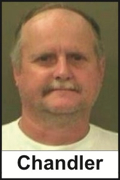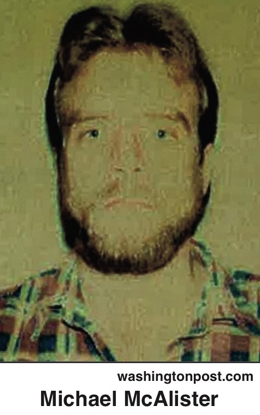Rascals case in brief
In the beginning, in 1989, more than 90 children at the Little Rascals Day Care Center in Edenton, North Carolina, accused a total of 20 adults with 429 instances of sexual abuse over a three-year period. It may have all begun with one parent’s complaint about punishment given her child.
Among the alleged perpetrators: the sheriff and mayor. But prosecutors would charge only Robin Byrum, Darlene Harris, Elizabeth “Betsy” Kelly, Robert “Bob” Kelly, Willard Scott Privott, Shelley Stone and Dawn Wilson – the Edenton 7.
Along with sodomy and beatings, allegations included a baby killed with a handgun, a child being hung upside down from a tree and being set on fire and countless other fantastic incidents involving spaceships, hot air balloons, pirate ships and trained sharks.
By the time prosecutors dropped the last charges in 1997, Little Rascals had become North Carolina’s longest and most costly criminal trial. Prosecutors kept defendants jailed in hopes at least one would turn against their supposed co-conspirators. Remarkably, none did. Another shameful record: Five defendants had to wait longer to face their accusers in court than anyone else in North Carolina history.
Between 1991 and 1997, Ofra Bikel produced three extraordinary episodes on the Little Rascals case for the PBS series “Frontline.” Although “Innocence Lost” did not deter prosecutors, it exposed their tactics and fostered nationwide skepticism and dismay.
With each passing year, the absurdity of the Little Rascals charges has become more obvious. But no admission of error has ever come from prosecutors, police, interviewers or parents. This site is devoted to the issues raised by this case.
On Facebook
Click for earlier Facebook posts archived on this site
Click to go to
Today’s random selection from the Little Rascals Day Care archives….
Click for earlier Facebook posts archived on this site
Click to go to
Today’s random selection from the Little Rascals Day Care archives….
Court cracks door – can Junior fit through it?
 Aug. 15, 2012
Aug. 15, 2012
The North Carolina Supreme Court won’t release its next batch of opinions until August 24, but its recent decision on a 2009 child sex abuse case could augur well for Junior Chandler.
On June 14 the court upheld the North Carolina Court of Appeals’ overturning of Patrick Loren Towe’s conviction in Surry County. Here’s the crucial part of the opinion:
“Under the North Carolina Rules of Evidence, a qualified expert may testify as to her opinion in her field of expertise if the testimony will assist the jury in understanding the evidence. An expert may not, however, testify as to the witness’s credibility or state that she believes the defendant is guilty.
“In sexual abuse cases involving child victims, an expert may not testify that sexual abuse has occurred without physical evidence supporting her opinion. An expert may not testify that the child has been ‘sexually abused’ if the testimony is based solely on the interview with the child-victim.”
In Patrick Towe’s case, only one expert witness so testified – in Junior Chandler’s it was six.
Without such a parade of “expert vouching,” Junior surely would have spent the past 25 years back home in Madison County instead of behind bars. How can the North Carolina Supreme Court now fail to acknowledge this?
Lack of DNA evidence opens way for injustice
 April 18, 2015
April 18, 2015
“DNA testing has been used 329 times now to prove the innocence of people wrongly convicted of a crime. But what happens when there is no DNA evidence to prove someone’s innocence? What happens when there is only his word, and the mounded doubts of the team that prosecuted and convicted him? And what happens when – despite growing certainty that it has imprisoned the wrong man for more than 20 years – the Commonwealth of Virginia stands poised to keep him locked up, possibly forever?
“Of all the maddening stories of wrongful convictions, Michael McAlister’s may be one of the worst. For starters, he has been in prison for 29 years for an attempted rape he almost certainly did not commit….”
– From “This Man Deserves a Pardon” by Dahlia Lithwick at Slate (April 13)
Michael McAlister’s story surely qualifies as “one of the worst,” but forgive me if I think Junior Chandler – coincidentally now serving his 29th year of imprisonment – has suffered every bit as much injustice. And in McAlister’s case at least a crime was actually committed, just not by him.
Less bonding, less crying, more thinking – why not?
Jan. 21, 2013
“According to advocates (of victim impact statements), they allow victims to personalize the crime and elevate the status of the victim by describing the effect the crime has had on them or their families. Some laud the courtroom ritual as an aid in the emotional recovery of the victim…. A few legal scholars suggest that the well-intentioned personalization of a crime can blur the line between public justice and private retribution….”
– From “Death by Treacle” by Pamela Haag in the American Scholar (Spring 2012)
“Prosecutor Nancy Lamb and the mothers of the victims burst into tears. Court officials handed out tissues.”
– From “Day Care Owner Convicted on 99 Counts of Child Abuse” by the Associated Press (April 22, 1992)
Count me with those “few legal scholars” who doubt justice is well served by injections of sentimentality. (Although Bob Kelly’s sentencing seems to have concluded without victim impact statements, prosecutors ensured an ample display of mawkishness – the front row was packed with supposed child-victims holding tight to their dolls and teddy bears.)
But sentimentality also extends to the blindered bonding of Little Rascals prosecutors and parents.
What if Nancy Lamb had managed to keep even the slightest professional distance between herself and the parents, instead of being swallowed up in their manic cause? Might she have been able to glimpse reality?
And what if Bill Hart had avoided dating (and later marrying) one of those parents?
Pennsylvania prosecutor Alan Rubenstein managed to avoid such pitfalls – why couldn’t others?
Time for Truth and Reconciliation Commission
Three years ago a former Edenton resident told me: “The town leaders still have some things to answer for about Little Rascals, and I suspect that until there is a process of reconciliation, the town will remain a troubled place, though it does a good job putting on a facade.”
Edenton will elect its town officials Nov. 5. The predominant issues – population decline and the lack of a second supermarket – are clearly important, but I want to add another. This is from a query I sent all the candidates:
I don’t live in Edenton, but I’m reaching out to candidates for mayor and town council about a local issue of historic importance.
The Little Rascals Day Care case was Edenton’s most significant event of the 20th Century. The trial of Robert Kelly remains the longest and most expensive in North Carolina history. He served six years in prison before the North Carolina Court of Appeals overturned his conviction and that of Dawn Wilson. The lives of Kelly, Wilson and the five other defendants were profoundly harmed over allegations of “satanic ritual abuse” of children in their care.
The Little Rascals case, most prominently covered by eight hours of documentary coverage on PBS’s “Frontline,” also did nationwide damage to the town’s reputation. But Edenton has never reexamined, much less made amends for, the wrongful prosecution of the Edenton Seven. One way to move forward would be to create a Truth and Reconciliation Commission.
Fact-finding, non-judicial truth commissions first appeared in the 1970s and have since been used to foster honest discussion and to encourage reconciliation in the aftermath of community conflict.
In North Carolina the Greensboro Truth and Reconciliation Commission was an independent, seven-member body that sought to heal a city left divided and weakened by the “Greensboro Massacre” of 1979. The parallel to Edenton is inexact but undeniable.
If elected, would you consider supporting a Truth and Reconciliation Commission to address Edenton’s continuing divide over the Little Rascals Day Care case? Thank you for your time and attention. And good luck in your campaign.
The two candidates who have responded so far seem at least cautiously open to the idea. One day the Town of Edenton will surely find the courage to embark on its long-avoided “process of reconciliation” – let’s hope the Edenton Seven are around to see it.’











0 CommentsComment on Facebook